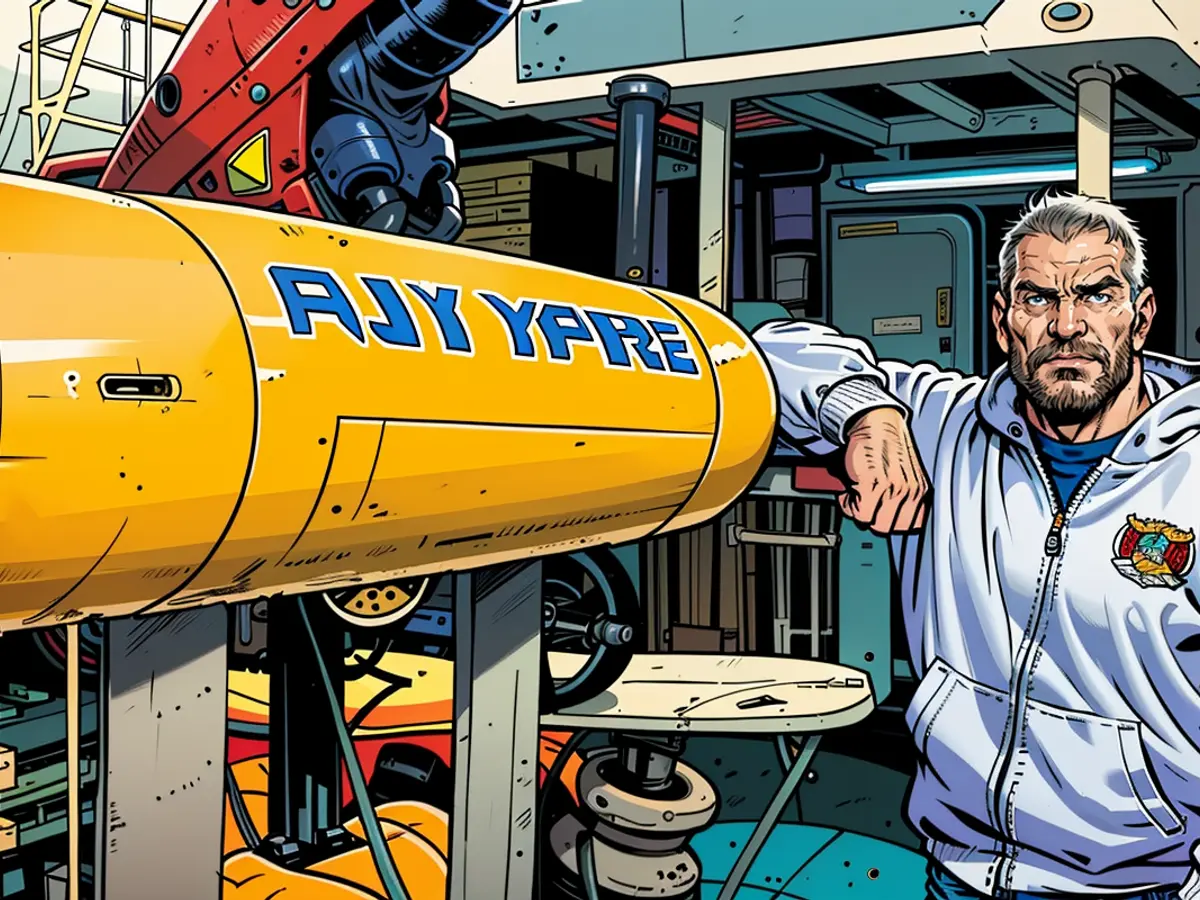Transporting goods or services. - Munitions retrieval from the Baltic Sea to begin in July
Munition recovery efforts in the Baltic Sea will kick off in July, as announced by the Federal Environment Ministry on Thursday. Contracts for positions in the Lübeck Bay at Haffkrug and Pelzerhaken were handed out to a company from Wandlitz and Hamburg, as well as a Hamburg bidding consortium. The funds for these projects come from a €100 million emergency program of the federal government.
Sebastian Unger, the maritime protection commissioner of the federal government, commented, "We're finally taking action to remove hazardous munition residues from the seafloor of the Baltic Sea, beginning with our emergency program's first hands-on approach." The upcoming trials in the Lübeck Bay are anticipated to provide valuable data. "We're the first nation in the world to tackle this multigenerational task head-on, and we're starting here in the Baltic Sea."
It's expected that remote-controlled underwater vehicles and specialized grasping tools will be employed in the Lübeck Bay to securely and eco-friendly remove munition residues from the ocean floor. The project will span from July through September. Furthermore, another pilot trial is planned for the Mecklenburg Bay, where a new proposal is being considered due to no profitable bids for the work in Großklützhöved.
The federal government had previously stated there could be up to 1.6 million tons of conventional munition waste in German waters in the North and Baltic Seas, with around 1.3 million tons of it in the North Sea alone. By 2026, a floating platform is to be constructed to identify, remove, and dispose of this munition, after which it will be incinerated at a waste disposal plant in Münster, Lower Saxony.
Unger and Schleswig-Holstein's Environment Minister Tobias Goldschmidt (Greens) will deliver an overview of the work and answer questions during a public information event on June 18 in Neustadt in Holstein, at 7 p.m.
Read also:
- The pilot test for munition removal in the Lübeck Bay is part of a broader initiative funded by the Federal Government's €100 million emergency program.
- The Federal Ministry for the Environment announced a pilot test for the removal of ammunition residues from the Bay of Lübeck, scheduled to begin in July.
- The Federal Government and Schleswig-Holstein's Environment Minister will provide updates on the munition removal project during a public event in Neustadt in Holstein on June 18.
- Munition recovery in Haffkrug and Pelzerhaken is set to be conducted by companies based in Wandlitz and Hamburg, as well as a Hamburg bidding consortium.
- The consequences of war have left up to 1.6 million tons of conventional munition waste in German waters, with around 1.3 million tons in the North Sea alone.
- The Federal Government aims to construct a floating platform by 2026 to remove and dispose of this waste in Münster's waste disposal plant, after which it will be incinerated.
- Remote-controlled underwater vehicles and specialized grasping tools will be utilized in the Lübeck Bay for secure and eco-friendly munition residue removal, as part of the ongoing pilot test.
- The planned pilot test in the Mecklenburg Bay is under consideration due to no profitable bids for the work in Großklützhöved, causing a need for a new proposal in this area.








